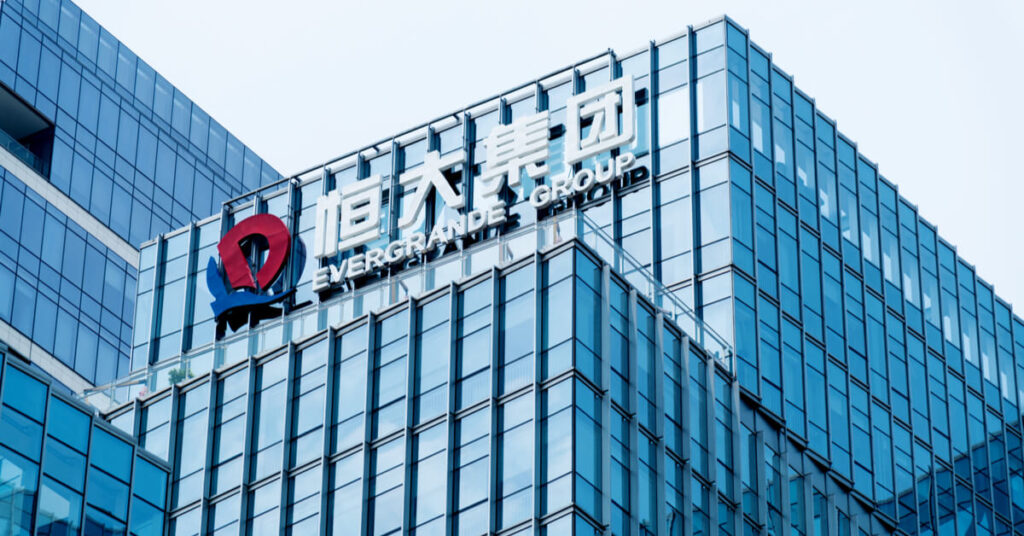
Crypto Prices Plunge as Evergrande Unravelling Spooks Markets
Chinese property giant, Evergrande, went from a $40 billion peak valuation last year to $300 billion in debt this week, a figure that is roughly 2% of China’s GDP, according to the Wall Street Journal. The speed and scale of the downfall led to a flash crash in markets across the globe.
How did Evergrande manage to fall so far from grace and what are the implications of the collapse for global markets, including crypto markets?
Who is behind Evergrande?
The company was founded by Hui Ka Yan in 1996 in Guangzhou and until now, was the second-biggest real estate developer in China. In 2020, its sales exceeded $100 billion and its profits were just shy of $5 billion. While the company is known for its residential projects, it has also spread into electric vehicles (Evergrande New Energy Auto), media production (Hengten Networks), a food and mineral water company (Evergrande Spring), and recreational facilities.
As a developer, Evergrande was in need of high cash-flows and relied on immense amounts of debt to fund its growth. It carries more liability than any other real estate company in the world.
Evergrande regularly bidded on land at substantially higher prices than the market, relying on banks and buyers to incur the risks of its actions. In spite of its listing as 122 on the Fortune 500 list, its debt and interest continued to mount, resulting in its first liquidity crisis in 2020. As a result of its inability to make payments, Evergrande sent a letter to the Chinese government to warn them of the impending financial crisis.
What kept Evergrande afloat after the 2020 liquidity scare?
One of Evergrande’s large investors cut the company some slack, but this merely prolonged the inevitable. The conglomerate began selling shares of its EV company, raising $8 billion, but this didn’t give it the cushioning it needed in the short term. What alternative strategies did Evergrande use to keep itself afloat? According to the infamous New York Times headline, the conglomerate gave its employees an ultimatum: “Loan us cash or lose your bonus”.
In spite of pressuring its employees to provide it with short-term loans, payments were missed, putting them again in financial jeopardy. By 2022, the company is set to owe $7.4 billion in bond payments according to Bloomberg, and has now failed to deliver on property sales, which sent alarm bells ringing throughout markets.
Customers who were promised apartments and housing have been clamoring outside of Evergrande’s office in protest. Evergrande owes over 1 million apartments to local and foreign investors.
How are markets coping with the bust of the Evergrande bubble?
After broadly ignoring Evergrande’s early hiccups, the damage spilled over into Wall Street on Monday, resulting in the S&P sinking by 2% and the retreating of global bond funds deeply invested in the Chinese real estate development company.
As it stands, Evergrande owes $83.5 million in bond interest by September 23rd and has been hit with lawsuits from stakeholders, customers, and suppliers. If Beijing is too slow to restructure the company’s several businesses and manage its onshore debts, it is likely to default on dollar debt.
Evergrande’s real estate dominoes are spilling into crypto-currencies
Since Monday, cryptocurrencies have suffered a wave of uncertainty caused by the potential debt default, falling to a value of less than $1.9 trillion, an 11% plunge in a mere 24 hours. That’s a loss to the crypto world of $250 billion, with Bitcoin losing 9% of its value and Ethereum losing 10% in 24 hours. On Tuesday prices stabilized and prices of Bitcoin and Ethereum are currently up slightly from Tuesday’s lows.
CEO of digital asset trading company GlobalBlock, Jonas Luethy, said that heightened regulatory scrutiny of crypto has contributed to panic selling. The ongoing investigation into Binance for insider trading and foul play in the market likely also contributed to the plunge in prices.
However, El Salvador’s President Nayib Bukele decided to seize the opportunity and bought $6.5 million of Bitcoin (150 bitcoin) to take advantage of the dip. Additionally, the ongoing buzz over NFT’s and anticipation of Ethereum 2.0 has continued to boost Ethereum.
Will Xi Jinping bail Evergrande out?
Beijing has not shown any indication of a bailout but authorities in Guangdong were ordered to devise a strategy to keep the firm afloat. Regulators have signed a deal to let Evergrande renegotiate payment deadlines to keep it afloat, but this does not provide the company with a long-term solution or provide investors with much clarity.
Meanwhile, investors are riled up and impatient. While roughly 1.6 million people who were expecting to move into brand new apartments are watching, “urban scars” – unfinished construction sites – long abandoned by developers, are currently undergoing demolition (watch).
Prime time to invest in crypto?
As of now, the future of Evergrande is uncertain and has caused enough buzz to alarm big investors. However, the link to cryptomarkets is indirect and completely unrelated to the long-term potential of crypto, meaning the plunge in prices in both major and up-and-coming cryptocurrencies could offer a prime opportunity to invest at bargain basement prices. The only question now is how low will prices go before they bounce back?
As always, this article does not constitute financial advice and you should be sure to do your own research and consult a professional financial advisor before making any investment decision.
To stay up to date on all things crypto, like Xcoins on Facebook, follow us on Twitter, Instagram, LinkedIn, and sign up at the bottom of the page to subscribe.

